Industrial washing / Articles
Industrial automation: how to increase the efficiency of operations
Any company seeks to optimize resources. Industrial automation as well as the Internet of Things (IoT) are key elements to increase process efficiency, with particular emphasis on washing. Find out how to get it.
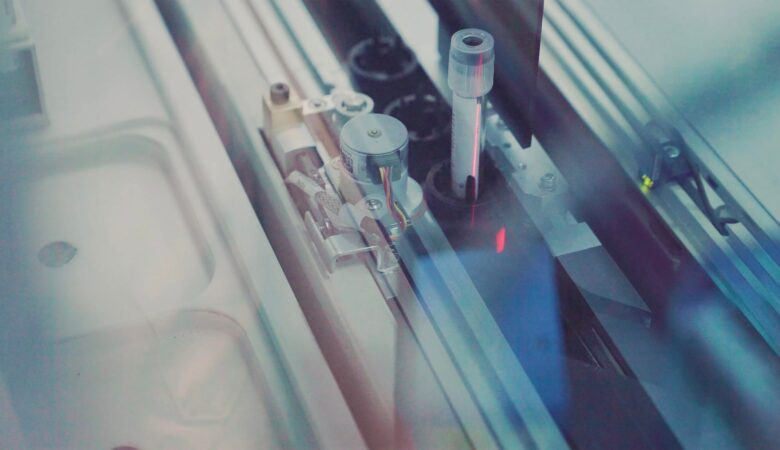
 14 minutes of reading
14 minutes of reading
2022-08-25 10:00:00
Companies around the world are turning to industrial automation as a tool to increase efficiency and reduce human effort along the value chain. This is how it is shaping the workplace, increasing productivity and profitability–and how businesses of all sizes and sectors can benefit.
What is industrial automation?
Industrial automation comprises technologies and mechanisms capable of performing repetitive tasks to reduce human intervention, while increasing the efficiency and competitiveness of a company.
The current scope of industrial automation is vast, ranging from production and assembly lines to administrative and logistics processes. This diversity is the result of an evolution spanning several decades. One of the most popular – and oldest – forms of automation is robotics, which has been a regular presence in media outlets and pop culture almost since its birth in the 1940s.
It was then that a writer – not engineers or programmers – first coined the term “robotics”. Isaac Asimov, author of several science fiction books, first used the word in 1942 in a short story. Asimov had an optimistic view of a robot’s role in human society, describing them as useful servants of man who would help human beings reach their full potential. It was also Asimov who proposed the three “Laws of Robotics” that would inspire countless for years to come. But even for an optimist like Asimov it would be hard to imagine that just 80 years later there would be almost 3 million active robots in the world – and that is companies alone.
Although robotics is one of the most well-known forms of automation, it is far from the only one. CAM (or Computer Aided Manufacturing) is a technology that been around for several years helping engineers create virtual machines to control and automate an entire manufacturing process. It uses a computer-aided design interface (CAD) to create 3D models of parts to be manufactured and can generate the entire code necessary to “print” it.
Industrial automation has also gone digital. One of the most promising solutions is RPA or Robotic Process Automation. It can build, deploy and manage programs that emulate repeated human actions- such as storing and moving data, emails or files. Other forms of industrial automation have emerged, such as OCR or Optical Character Recognition, a process that converts scanned text images into machine-readable text. This allows companies to automate data-entering processes from paper documents, such as invoices, into their systems.
Internet of Things (IoT) is, of course, another of the most innovative trends, allowing companies to connect devices through sensors, automation software and communication equipment. The key advantage of IoT is faster and more informed decision-making, which can be critical in Support and Maintenance areas.
With all these innovations brewing, it is no wonder that the future looks bright for industrial automation. Some estimates show a market cap up of up to 275 billion euros by 2027 – a double-digit growth, despite the pandemic. Every company, regardless of their size or sector, can benefit.
What are the benefits and risks of industrial automation?
Industrial automation has several obvious advantages for companies, including reduced costs, increased production output and a shorter delivery time. High levels of automation are associated with a safer working environment and a reduced ecological footprint. The elimination of repetitive, dangerous, and unpleasant tasks frees up time, allowing people to focus on growing and improving the business.
The food, healthcare and retail sectors, in particular, have a lot to gain from automation in both production and washing processes. Given the daily work scale and health hazards involved, an effective response is only possible through automation strategies.
However, industrial automation also poses some challenges, the main one being a significant capital expenditure. As with any purchase, a thorough cost-benefit analysis is due – including the opportunity cost of not upgrading. Another challenge is flexibility- investing in technology should not prevent the company from adjusting to market changes, and stifle process, products or service innovation- but it often does.
MultiWasher, Somengil’s industrial washing machine, is a great example of how industrial automation cane be put to use at the service of companies. On the one hand, it adapts key washing variables (temperature, pressure, amount of detergent) to the type of products being washed in each cycle. It cab store up to 20 washing programs, accessible via an intuitive touch screen, so the operator can quickly choose the right information rather than having to input washing parameters manually.
Because it is an ergonomic and enclosed equipment, the machine easily adapts to any process–not the other way around. It improves the output while reducing water and energy consumption by over 50% during washing.
How to achieve industrial automation in washing
There are several ways to achieve high levels of industrial automation in the washing process. These are the main ones.
Pre-configured washing programs
Storing washing parameters provides companies with a significant advantage. Starting the washing process requires just one initial action on the operator’s part and sets off every subroutine in a manner adjusted to the material to be washed. This eliminates the need to set up each wash, reduces human error, and minimizes the waste of water, detergent and energy.
Somengil washing machines, as you’ve seen, have a wide range of programmes available, on an easy-to-use touch screen. You can associate with each program a type of utensil and even an image to make the whole process more intuitive.
For example, you can allocate program 1 to plastic boxes, program 2 to carts, etc. to make the job easier. Or customize each washing program in the most convenient way to your operation. The main washing variables are thus stored to ensure optimized cycles.
Loading and unloading
One of the most time-consuming manual processes in washing industrial utensils is the loading and unloading of carts, which usually involves high waiting times. This typically represents operators’ downtime, in addition to the risk of accidents or damage to utensils associated with human handling.
That’s why at Somengil we design customized cart loading and unloading solutions that reduce waits and automate the process.
The utensils are easily placed in a cart designed for this purpose, which is easily and quickly shifted into the machine. The operator then selects the specific programme for this wash and, once the washing has been completed, the operator removes the cart with the utensils cleaned, dried and disinfected. Although it requires operator intervention, the process is optimized and simplified to the level of being automated by the human mind.
Adjustment of automatic washing parameters
One of the biggest challenges of industrial washing is handling very different utensils – say AC filters and food trays in one wash. Often, staff needs to wait until a certain quantity of similar utensils is gathered before initiating the washing cycle, which leads to frictions in the workflow.
To ensure efficient washing without compromising versatility, at Somengil we have developed the MultiWasher concept. Our industrial washing machine adapts to any type of utensil – be it supermarket carts, pans, trays, dishes and more.
The main washing variables – from water pressure to temperature and cycle duration – are permanently adjusted to the type of utensils in each wash, without human intervention, to ensure the expected result.
Detergent and drying regulation
Companies require an worrying amount of detergent to keep up with washing need-and even then it may not be enough to clean effectively. In addition to the economic factor, it is important to consider the harmful consequences of this waste for human health and the environment.
Somengil’s new generation of dishwashers and utensils automatically adjusts the optimal amounts of detergent and drying for each wash. To do this, it uses an innovative system with two dosifers that work without the operator having to participate in the process.
The drying helps to dry the utensils faster and the detergent is used only in exceptional cases where the high washing temperature (about 90ºC) is not enough. The costs of the operation appreciate it, and so does the planet.
Integrated pre-wash
Cleaning utensils requires removing the largest residues first, before washing. This need for pre-washing usually implies a large consumption of time, water and labor.
Somengil washing machines are designed so that the pre-wash can be eliminated. This step is integrated into the washing process and everything takes place in a closed cabin and in a fluid process, which eliminates the need for the traditional waste scraping process. With efficient washing machines this action will be more than enough to ensure a perfect wash afterwards.
Reuse of water
Traditional industrial washing machines require continuous water supply throughout every wash cycle. This implies considerable consumption, which is even more worrying today, given the serious situations of drought and lack of drinking water.
MultiWasher – developed by Portuguese engineers – tackles this issue directly. This state-of-the-art machine can automatically reuse the washing water between cycles and complete multiple washes with the same water without human intervention. This form of industrial automation has concrete results – MultiWasher saves 2/3 of water when compared to other industrial washing machines.
The power of data
“You do not improve what you do not measure”, so goes the old management mantra. The same goes for industrial washing. Even when washing cycles are setup and geared towards a specific target, it is only possible to know whether the process is optimized by checking the actual consumption data, be it water, detergent, secant or energy.
With Multiwasher, all washing variables are recorded, which provides important clues on how to improve machine performance in the future. It is possible to notice that washing cycles result in higher consumptions and what are the optimal parameters for each type of utensil. Everything is recorded so that the data can serve as the basis for future optimizations.
Industrial automation with a human touch
For us, industrial automation only makes sense with a focus on the operator. That’s why we design our machines to be as ergonomic as possible to facilitate operations and increase productivity. Our engineers design machines to facilitate operator work and prevent people (or processes) from having to adapt to equipment.
Efficiency is essential in any business and industrial automation is one of the most direct ways to achieve it. To achieve this in the washing process, look for an equipment with the possibility of pre-configuring a wide variety of programs, automating the loading and unloading of carts, automatic temperature adjustment, water pressure, amount of detergent and drying, that does the integrated pre-wash and that registers the data of each cycle for future reference. But above all, let it be drawn with the operator in mind.
MultiWasher is an industrial washing machine designed to establish new efficiency standards. Developed by Somengil, this machine saves 2/3 of the water and 70% of the detergent. Explore all the benefits in a custom webinar or get in touch with our team.
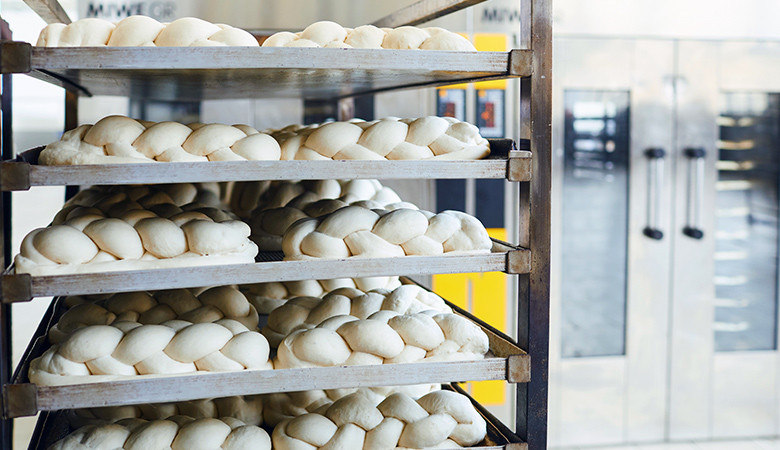

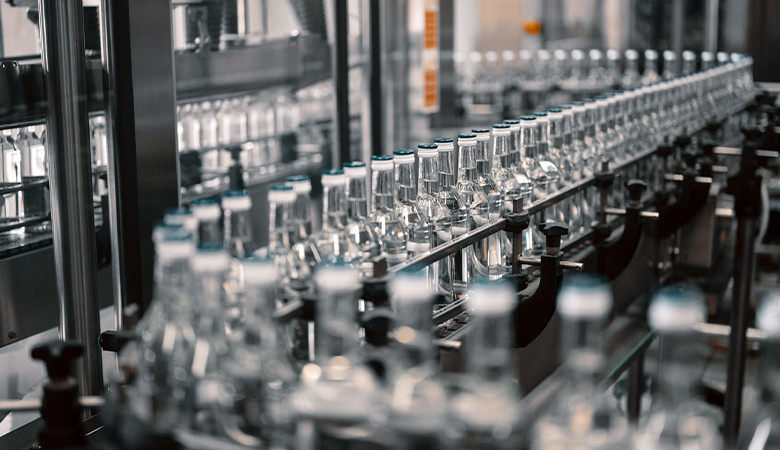
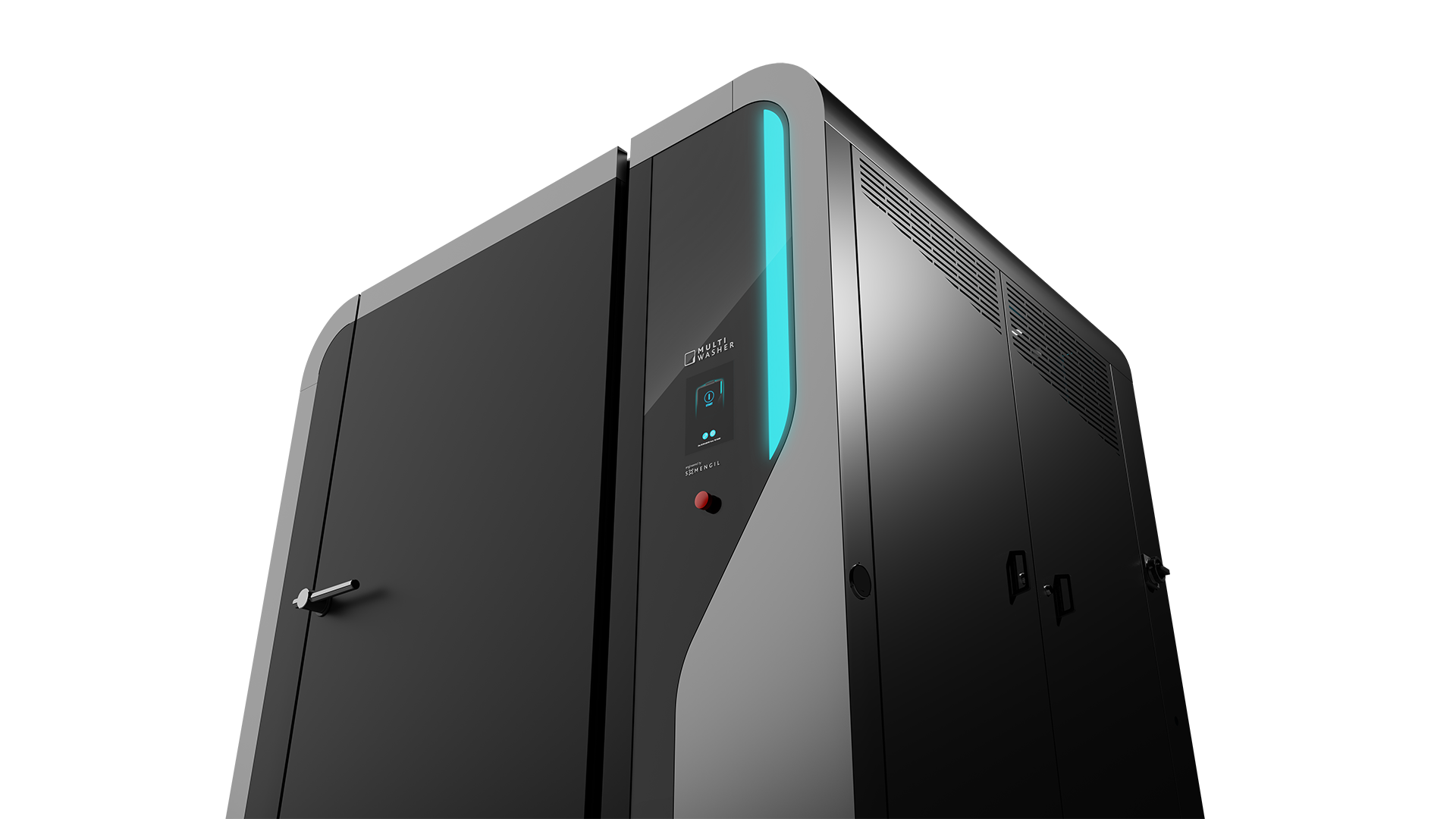
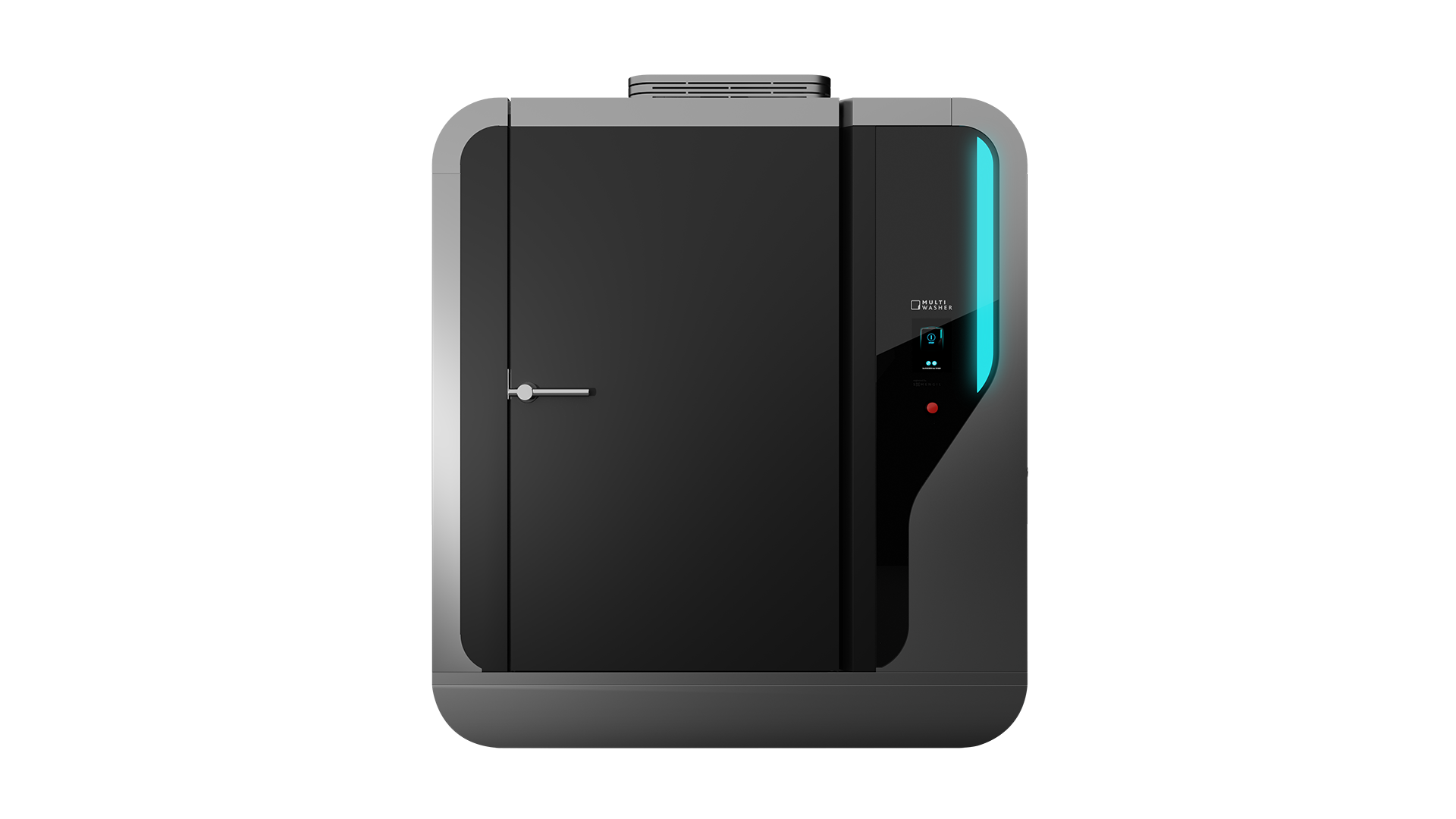
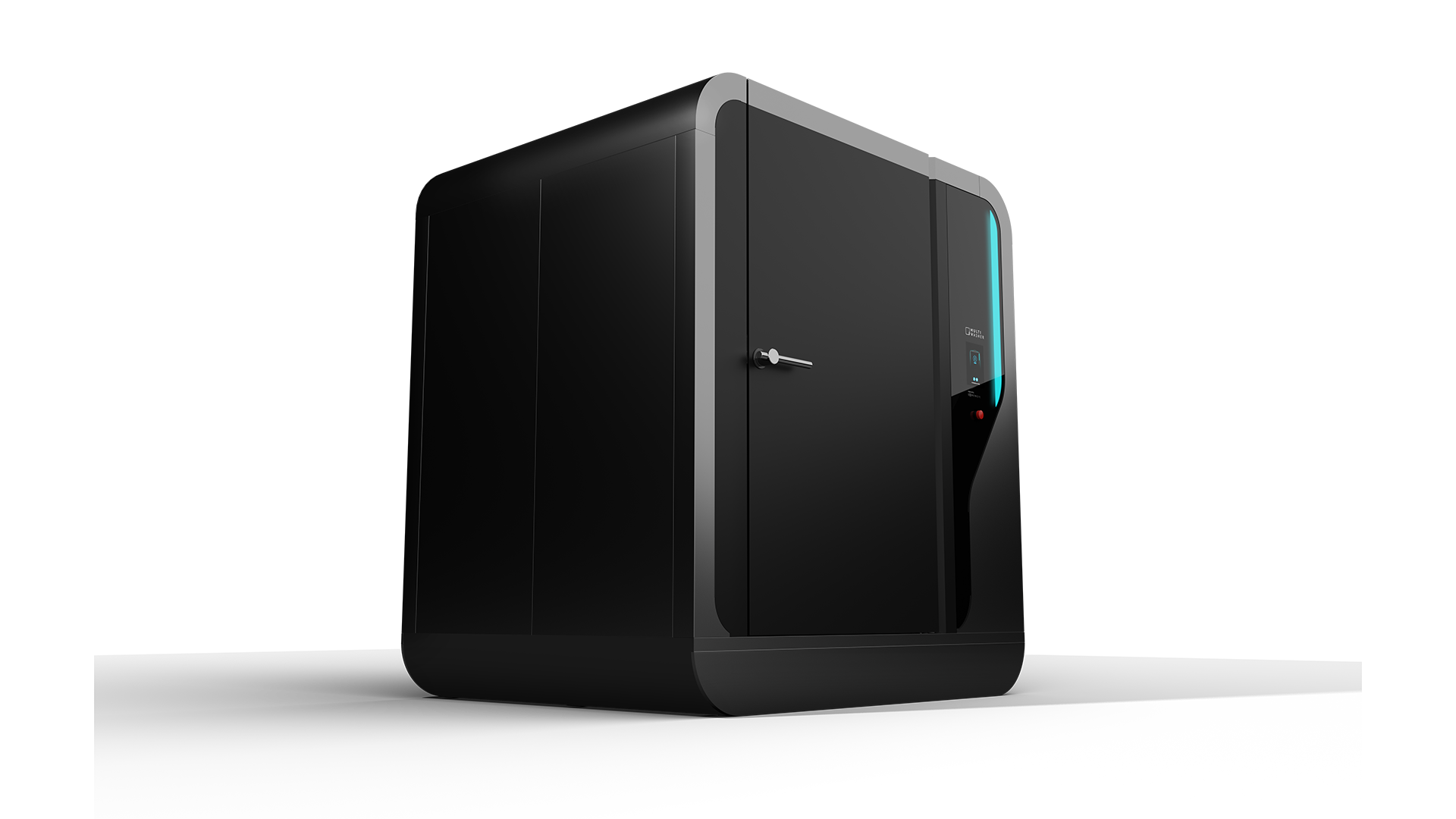
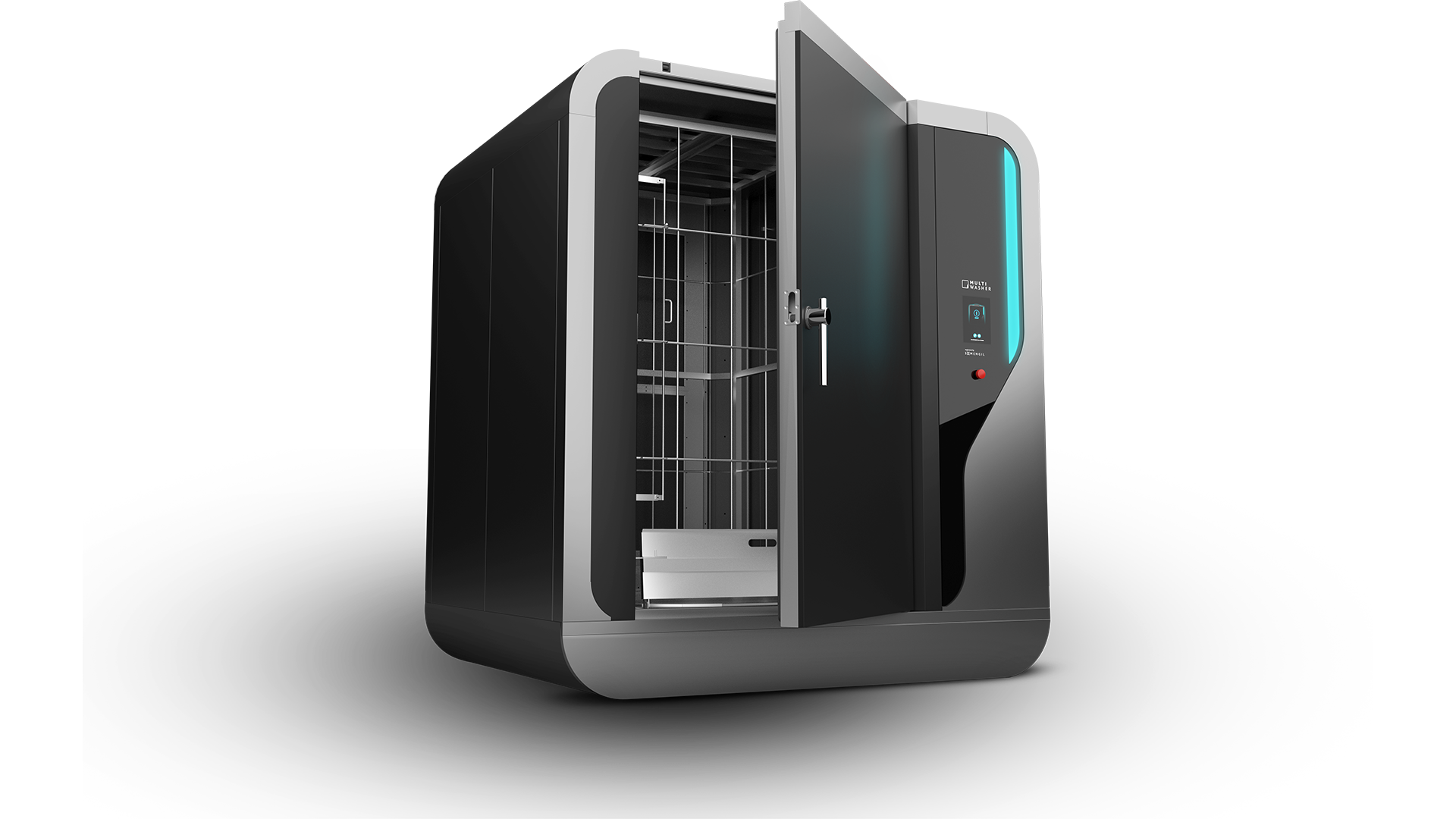
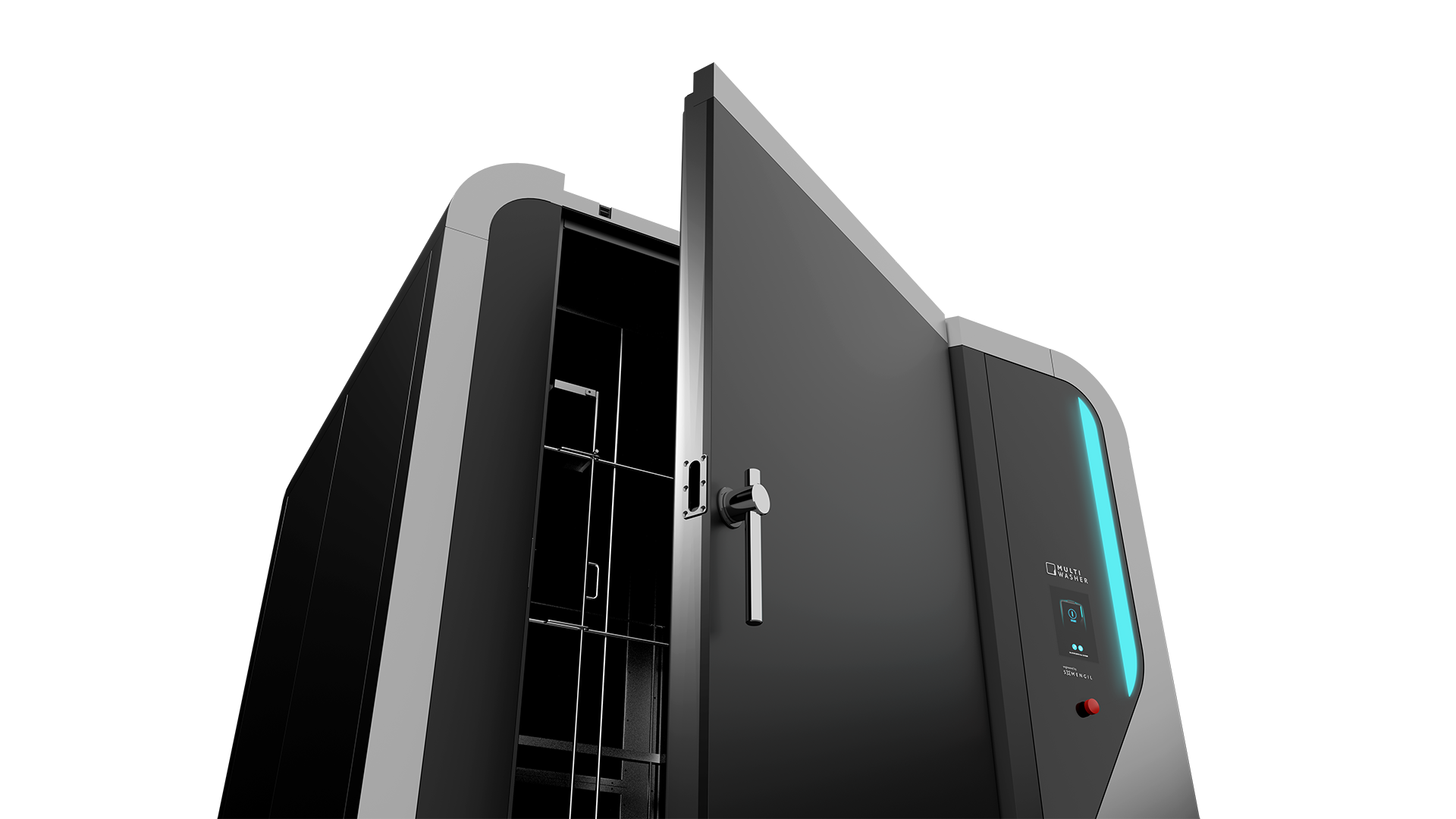
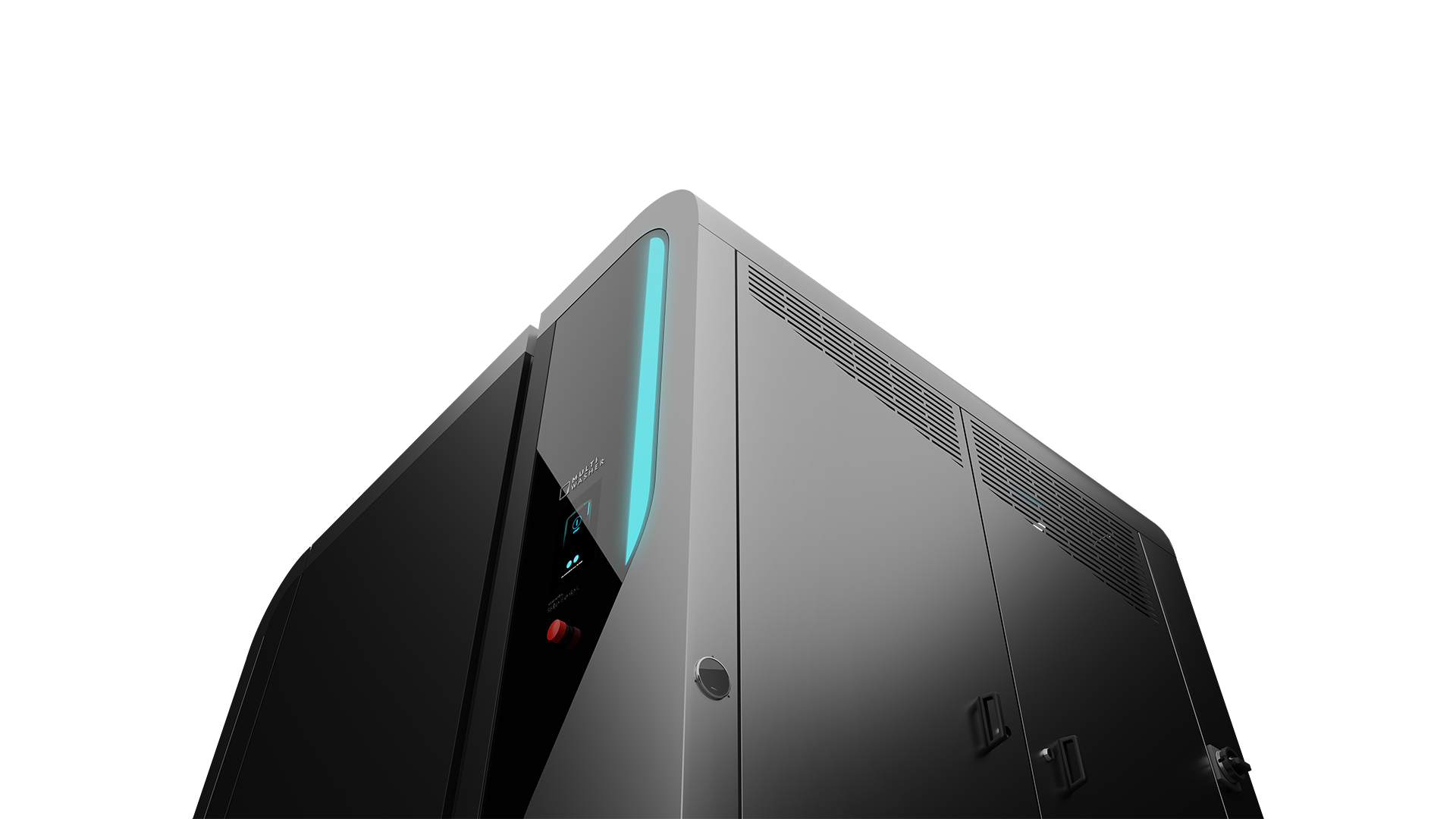
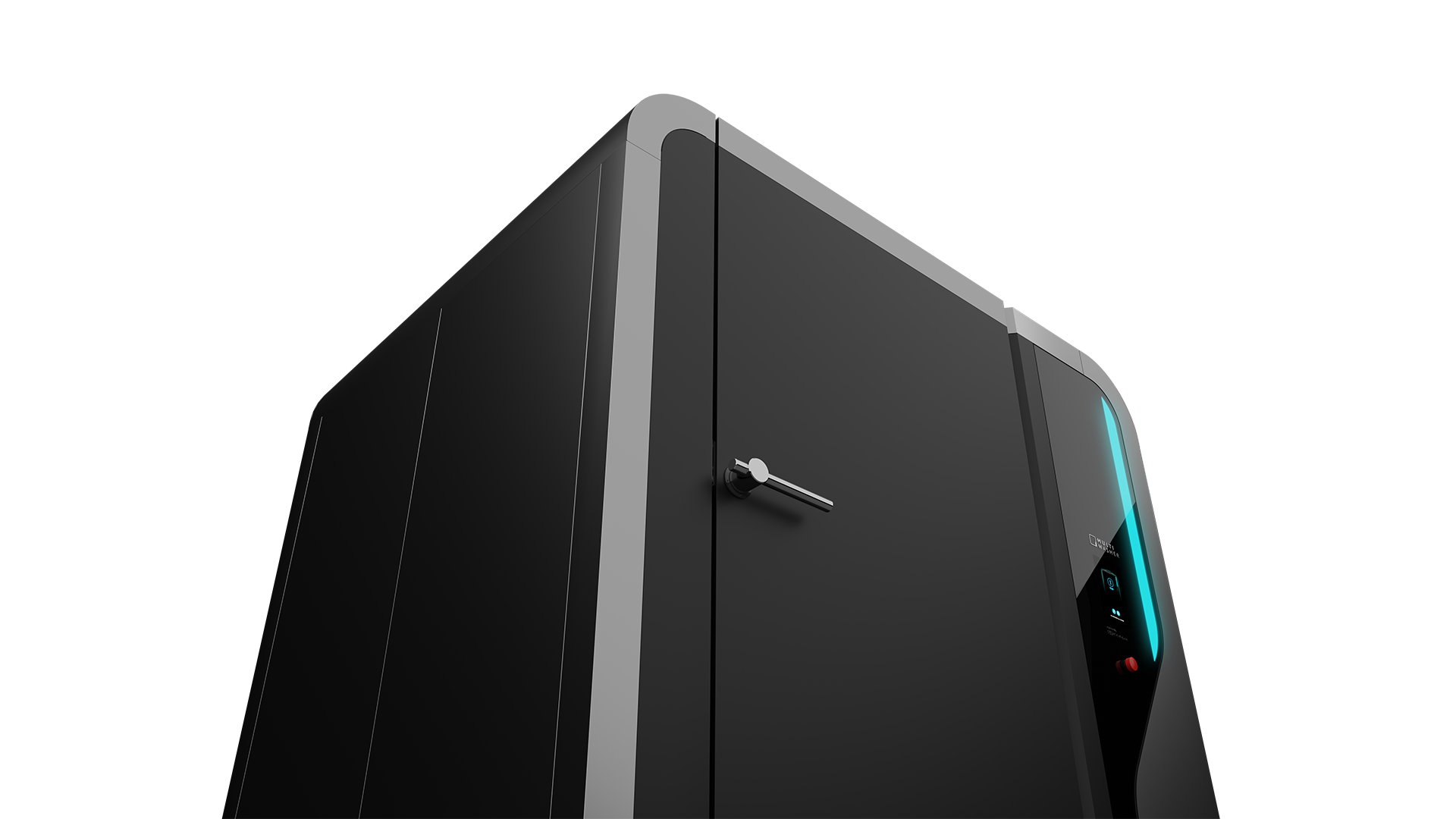
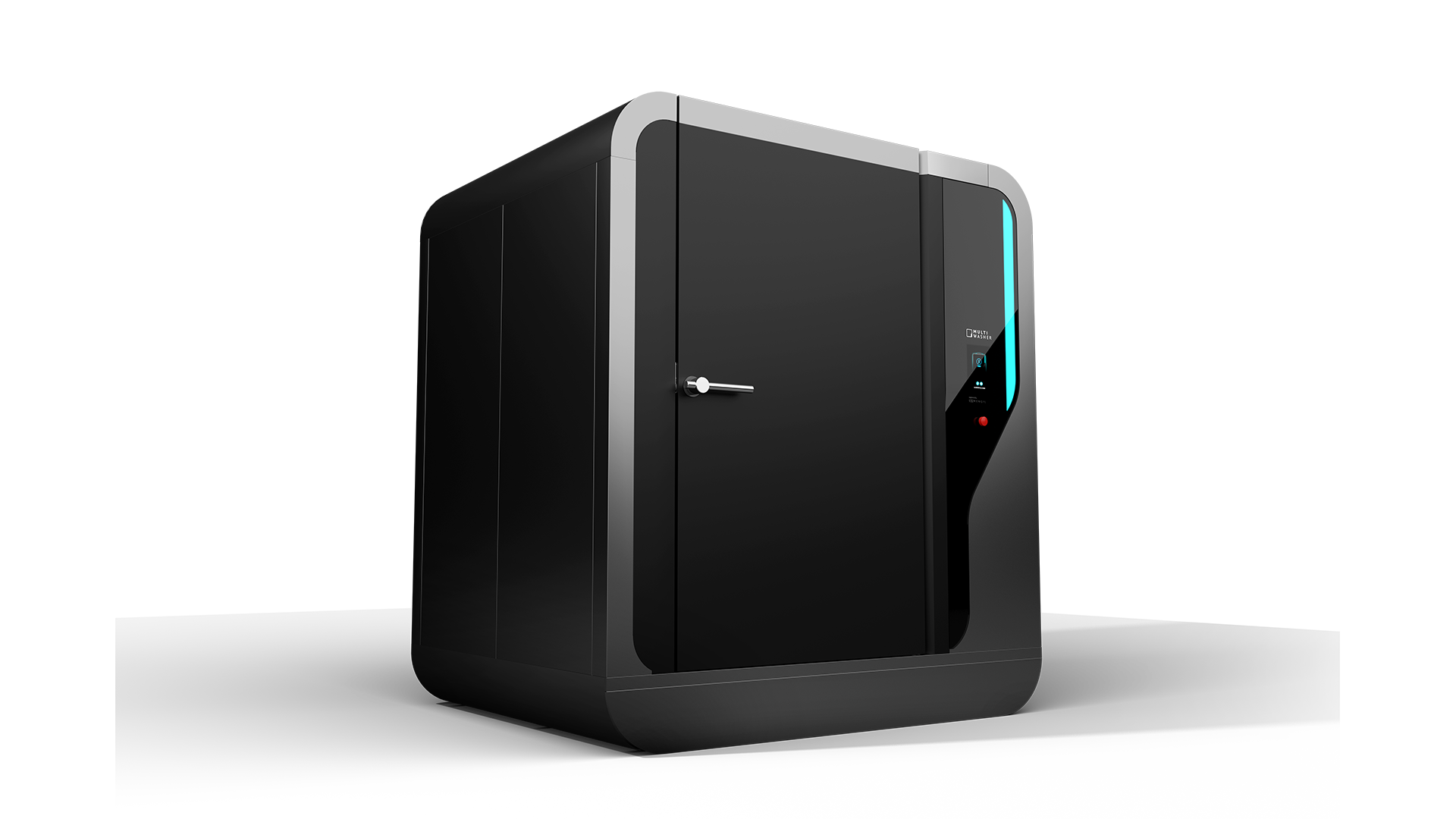
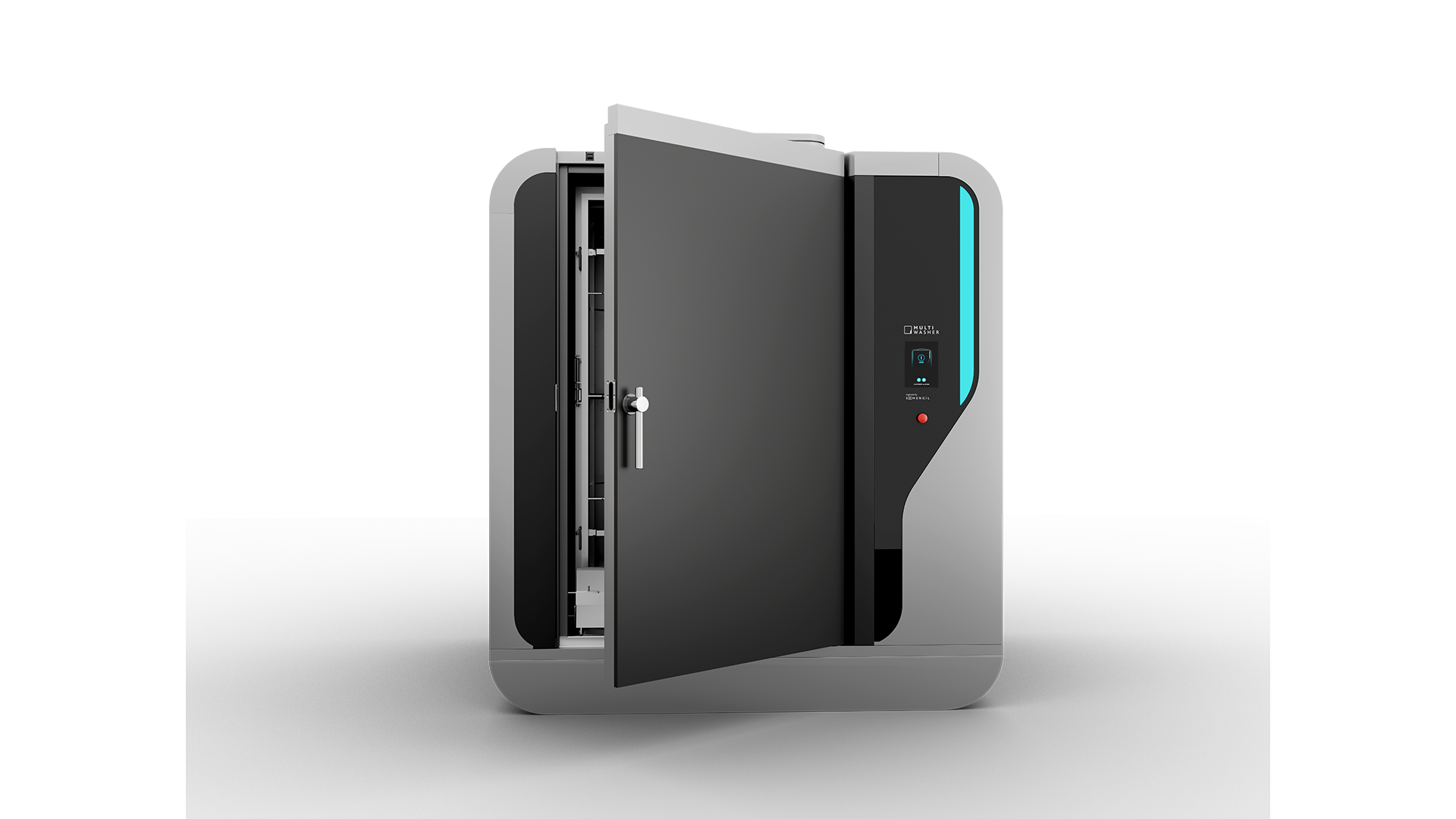
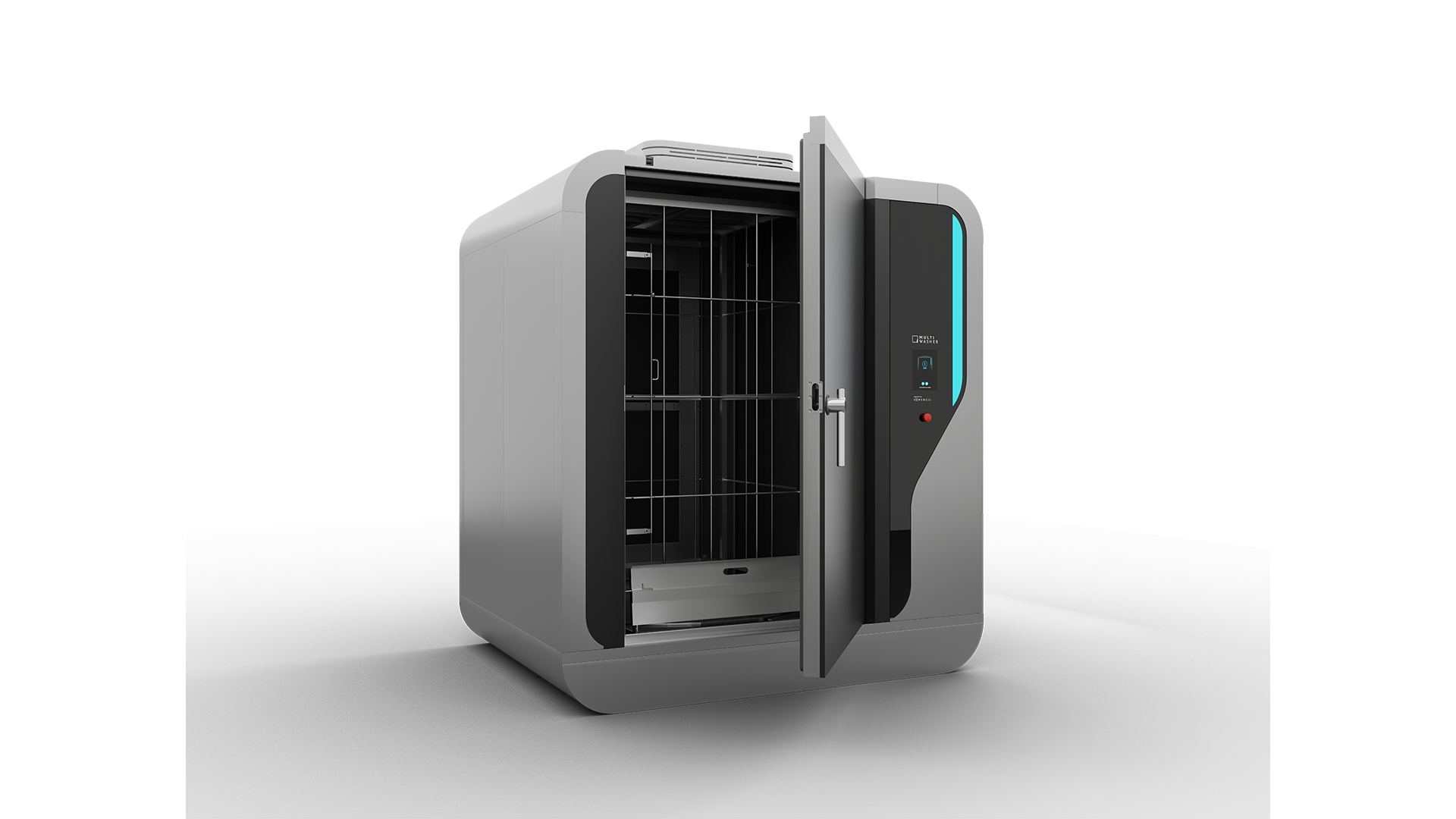
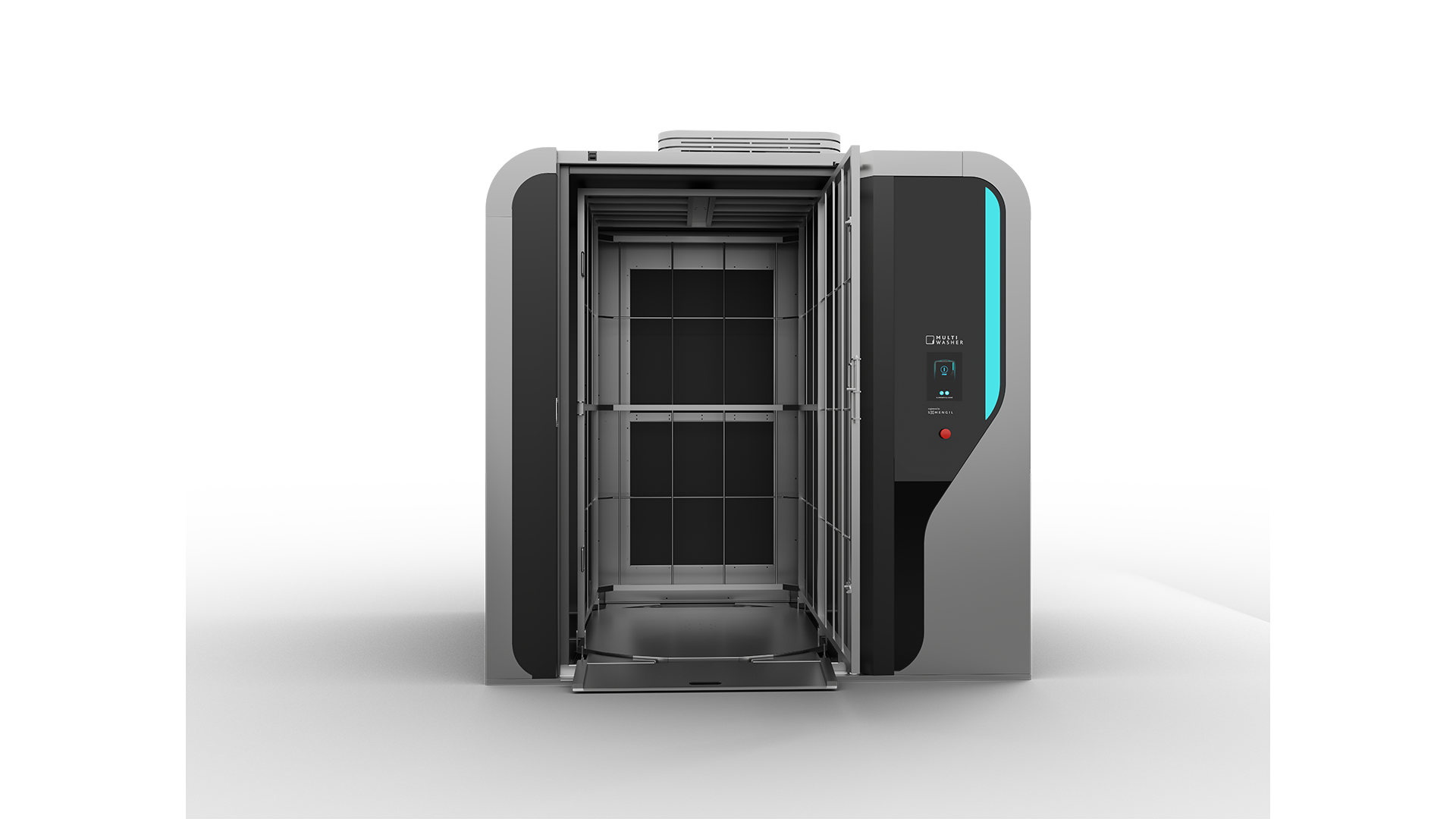
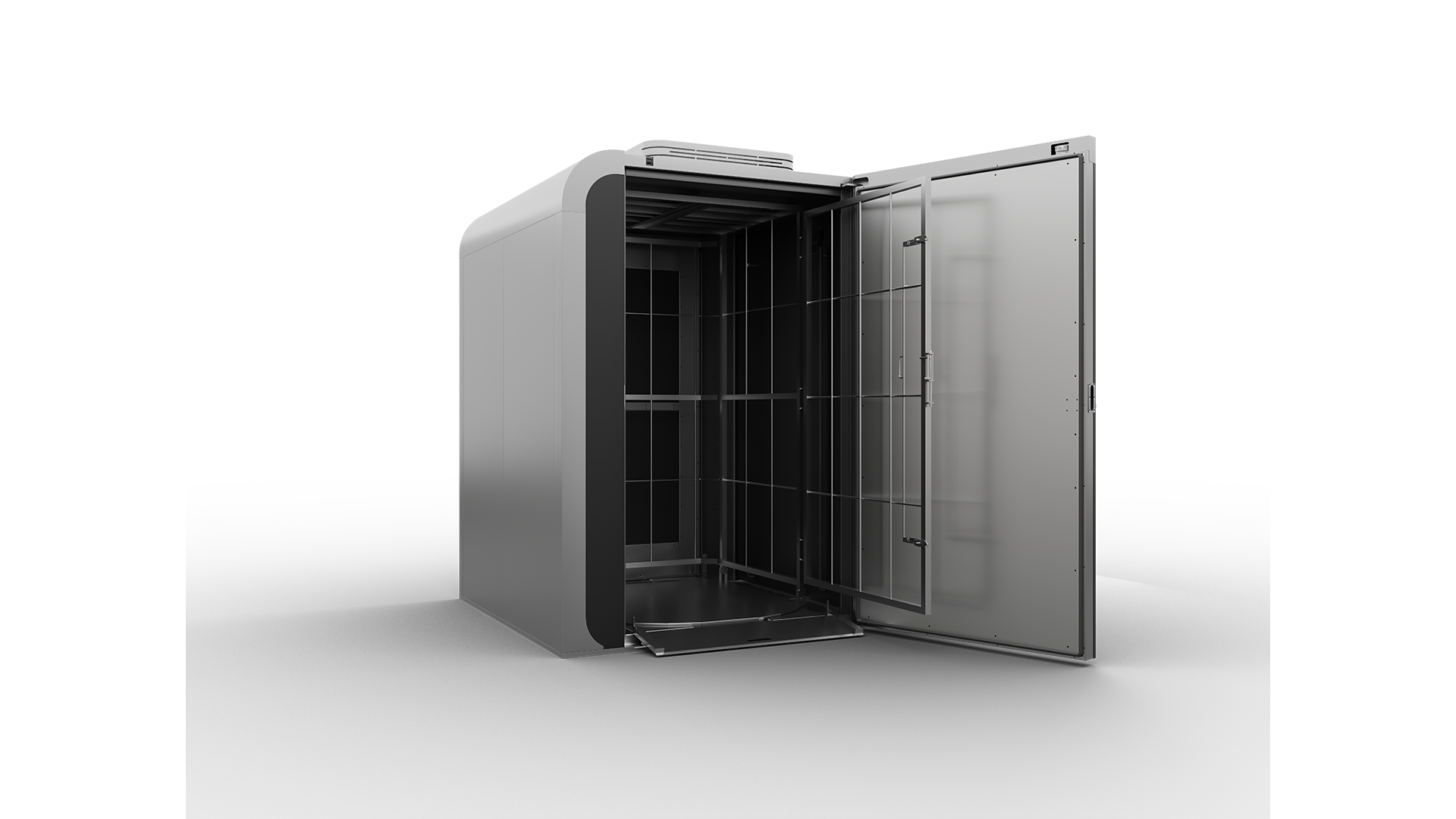
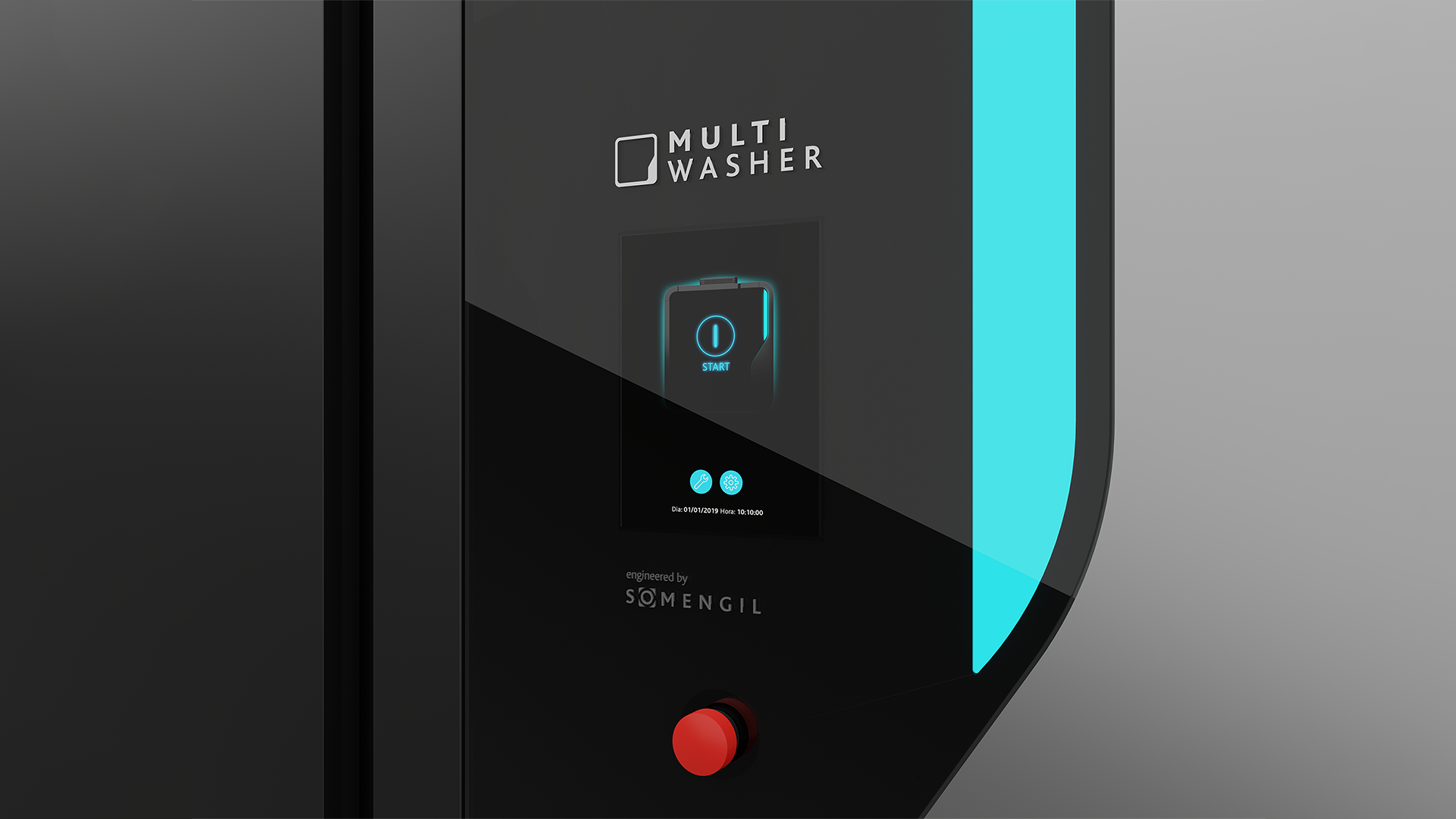
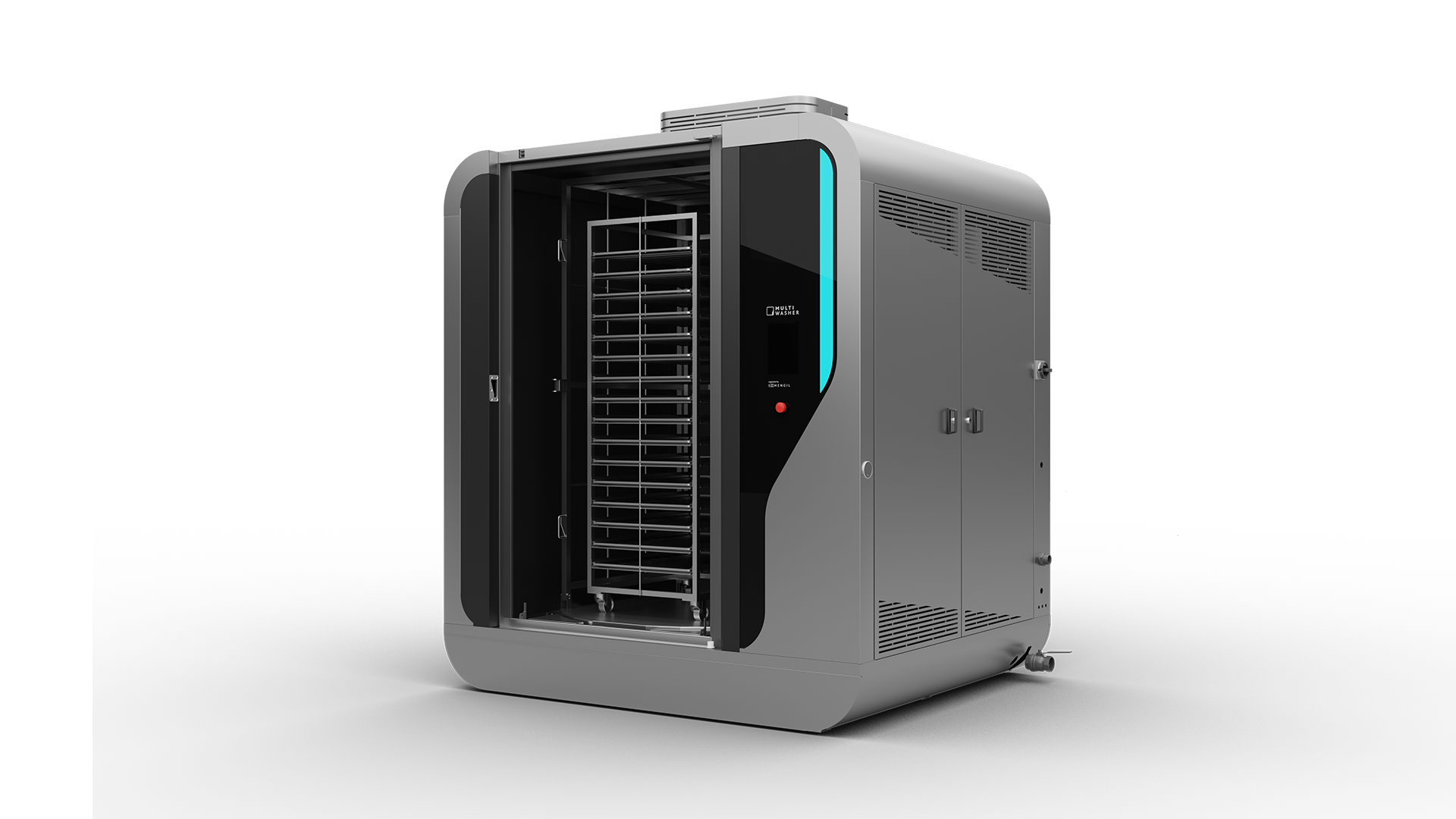
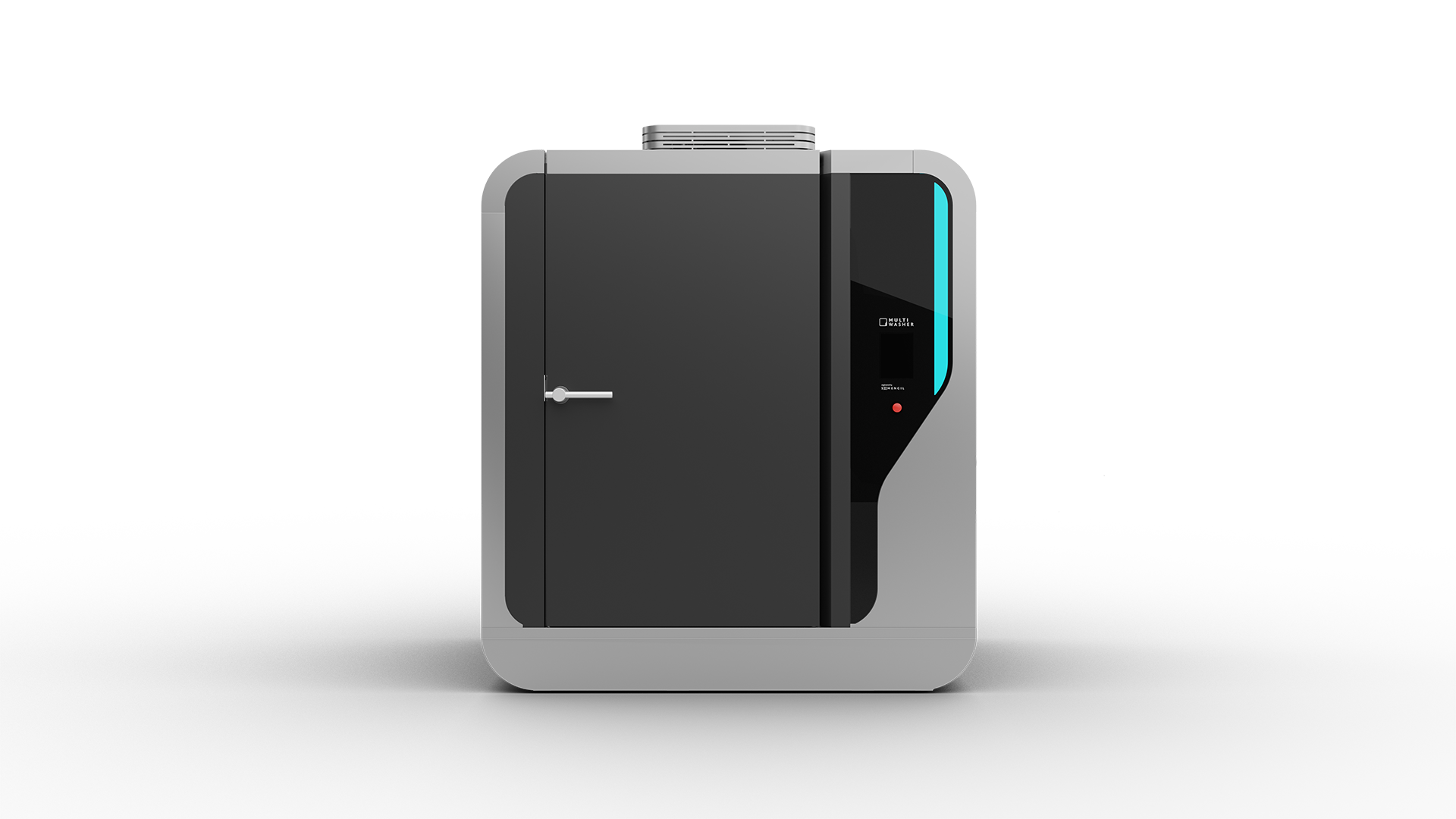

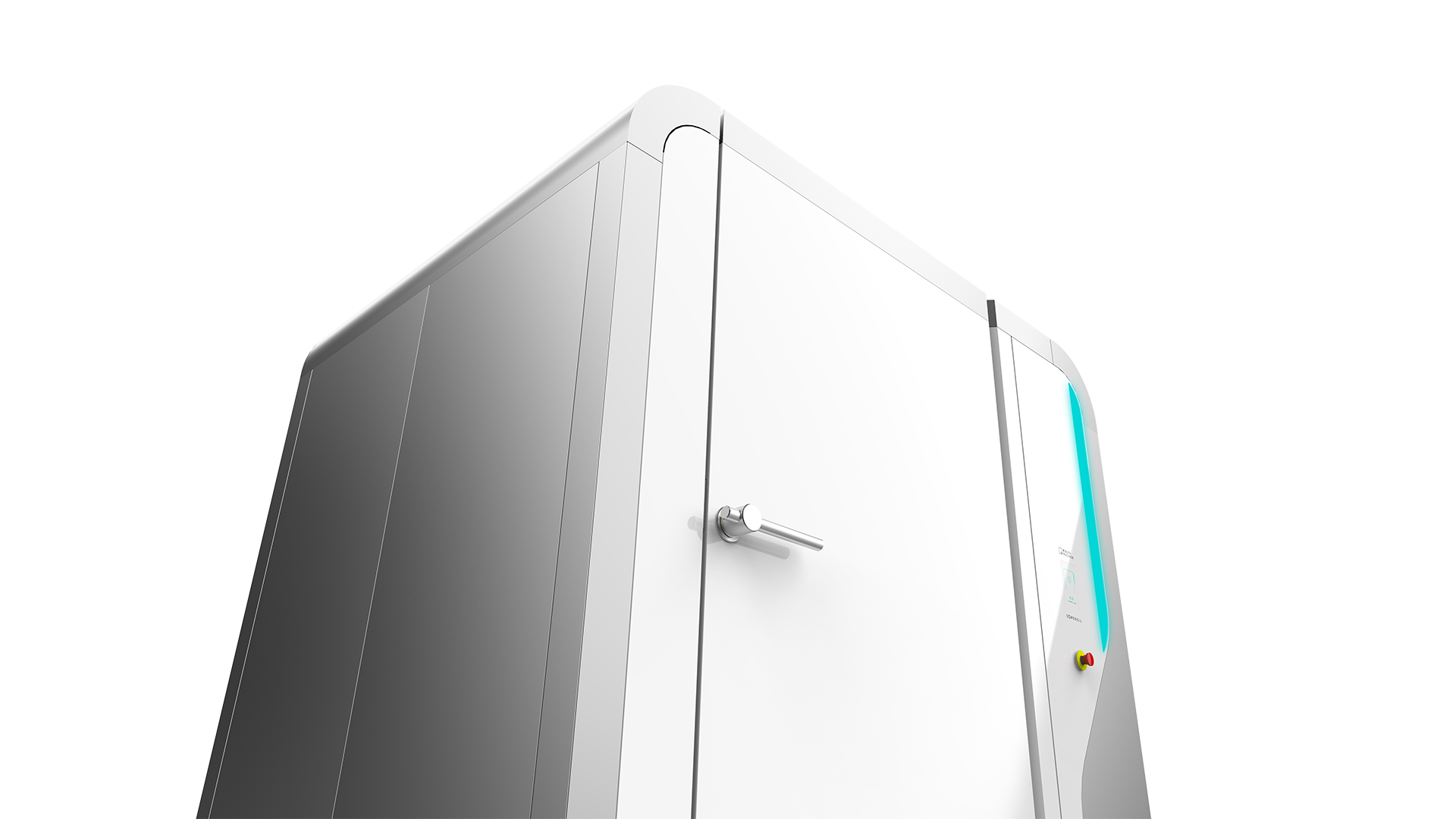
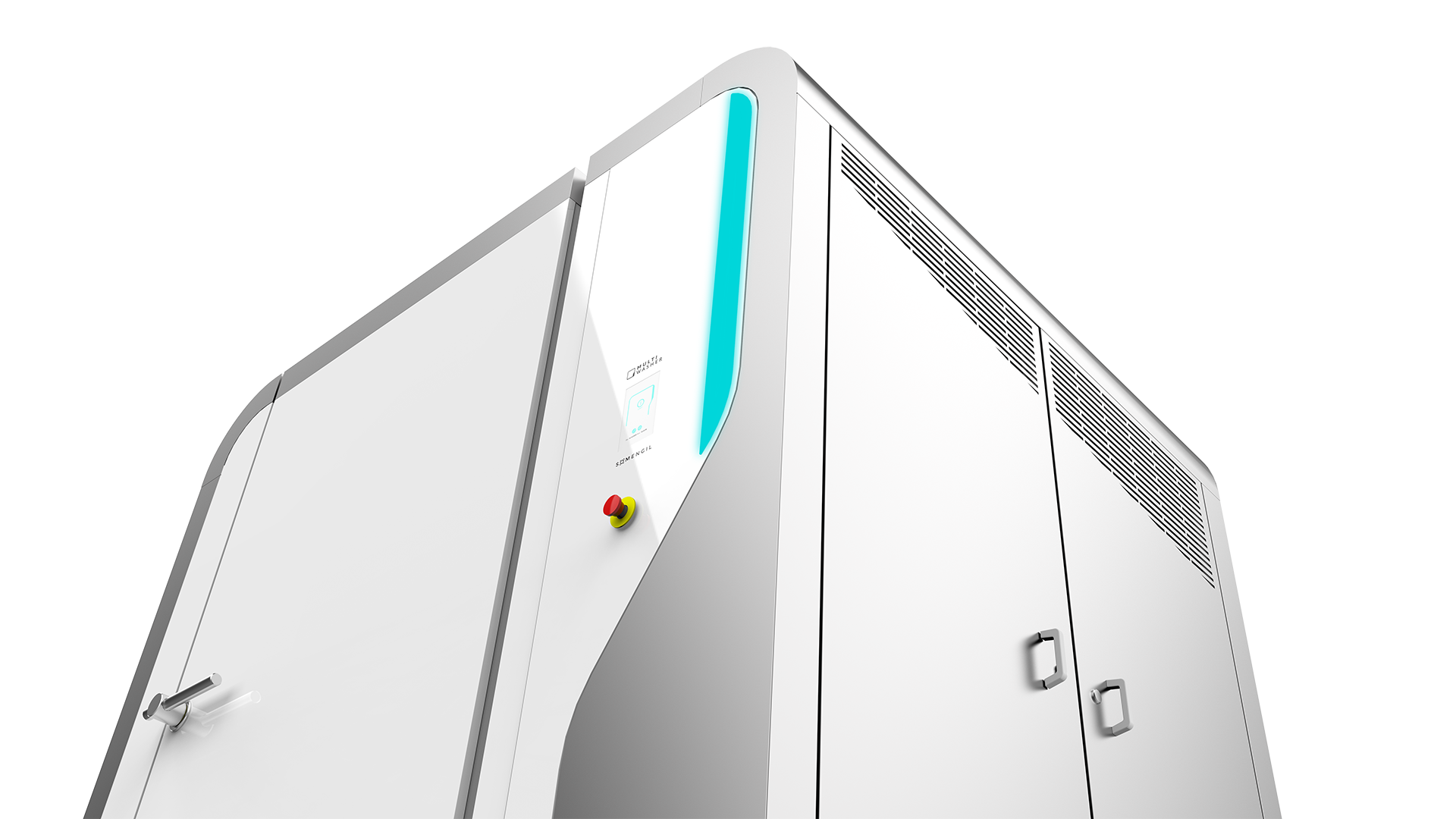
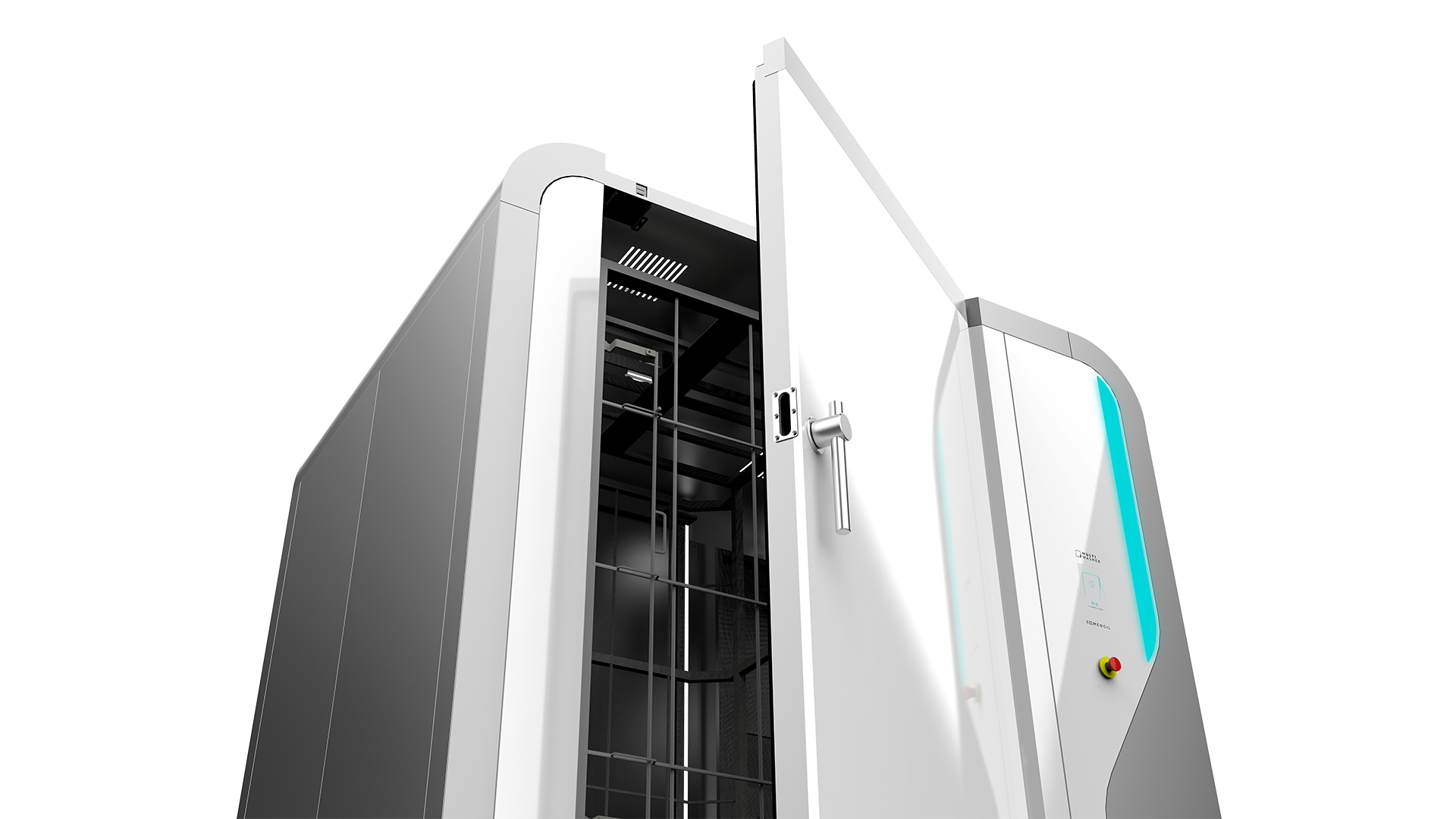
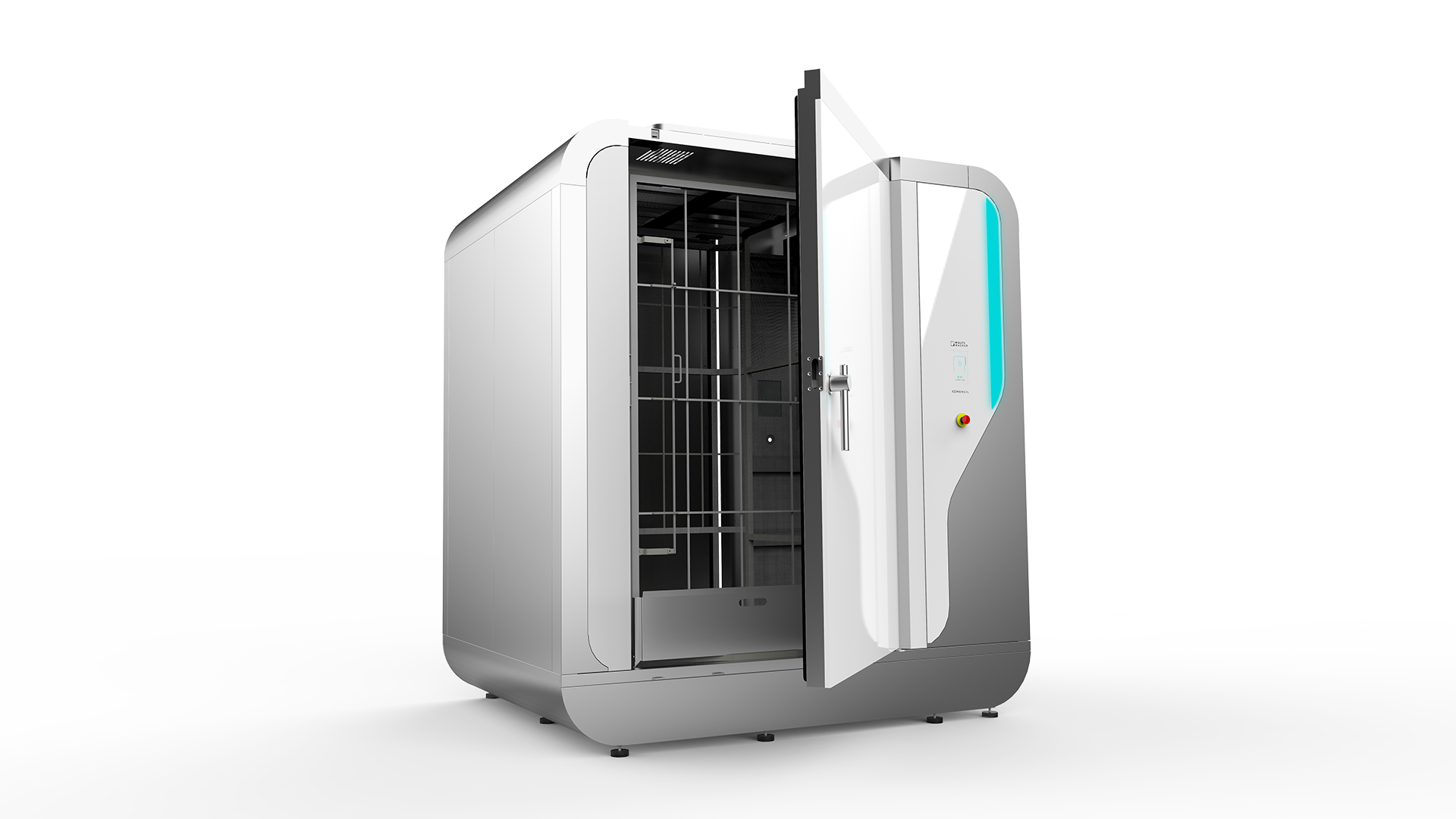
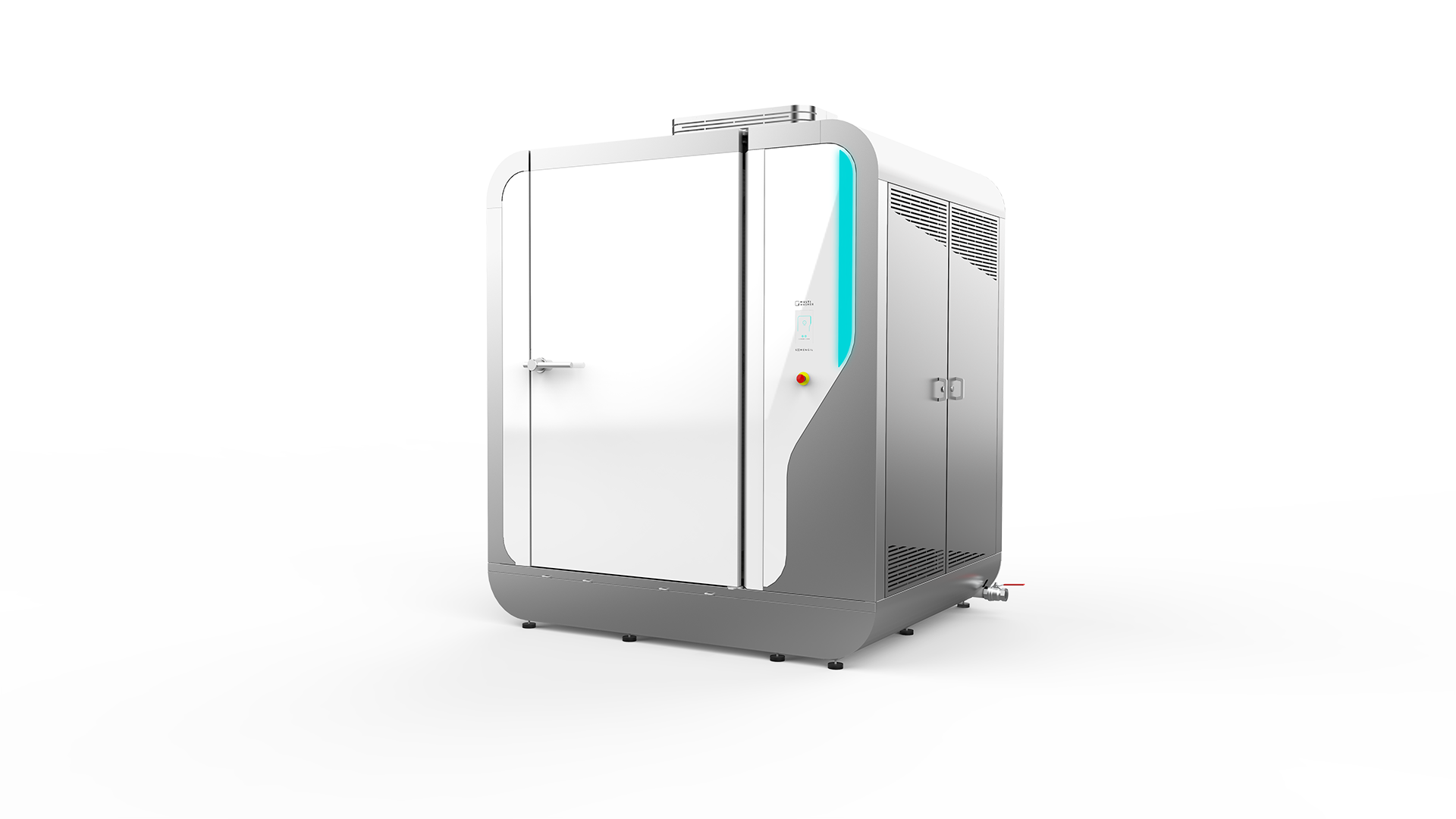
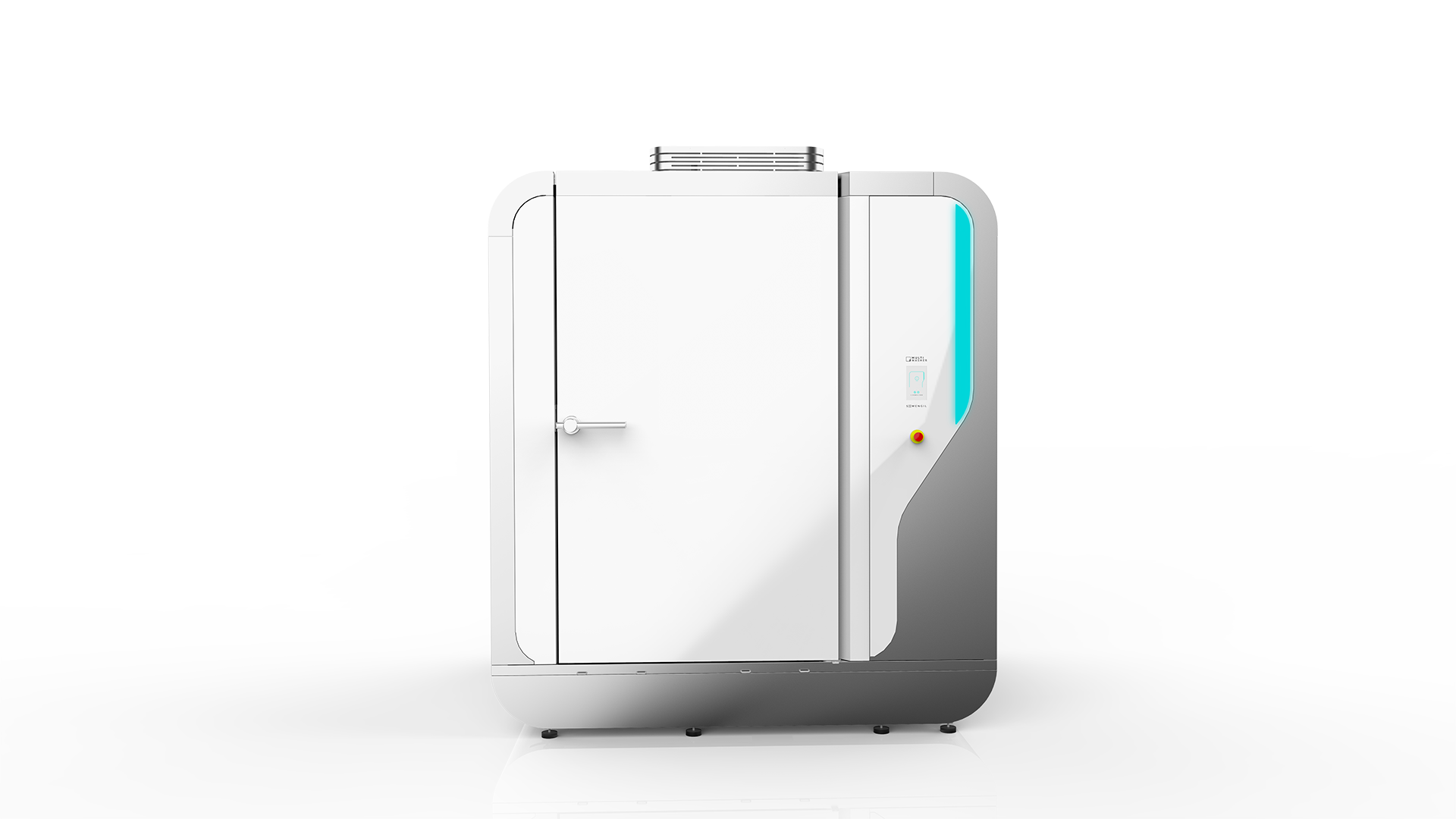
 Portugal
Portugal United Kingdom
United Kingdom United States
United States France
France Spain
Spain Germany
Germany Romania
Romania Italy
Italy Czech Republic
Czech Republic Finland
Finland Hungary
Hungary Slovakia
Slovakia Greece
Greece Lithuania
Lithuania South Korea
South Korea Russia
Russia Saudi Arabia
Saudi Arabia Poland
Poland Brasil
Brasil Hebrew
Hebrew